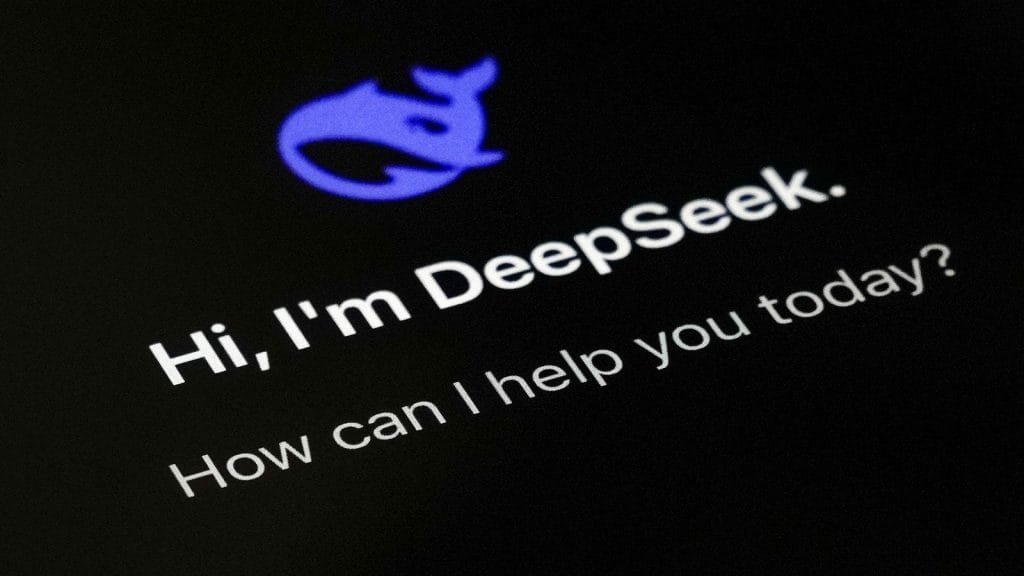Introduction: The AI Revolution You Can’t Ignore
DeepSeek News EXPOSED: Let’s face it: artificial intelligence isn’t just coming—it’s already here. From how we work to how we interact with the world, AI is rewriting the rules. And at the centre of this seismic shift is DeepSeek, a company that’s quietly (or not so quietly) becoming a household name in tech circles. But what’s going on behind the scenes? Leaked documents, insider reports, and expert predictions suggest that DeepSeek’s 2025 roadmap isn’t just about smarter algorithms or faster data processing. It’s about reshaping humanity’s future.
In this deep dive, we’ll unpack how DeepSeek’s latest moves could alter industries, redefine privacy, and even challenge what it means to be human. Spoiler alert: this isn’t science fiction anymore.
1. DeepSeek’s 2025 Masterplan: What Leaked Documents Reveal
Earlier this year, a trove of internal DeepSeek documents surfaced online, sparking debates among tech analysts and ethicists. While the company hasn’t officially confirmed their authenticity, the leaks align with patent filings and hiring trends that hint at three core goals for 2025:

A. “Hyper-Personalized” AI Ecosystems
DeepSeek isn’t just building tools—it’s creating entire ecosystems. Imagine a world where your phone, car, home, and workplace are seamlessly integrated with AI that anticipates your needs.
- Example: Your AI assistant schedules doctor appointments before you notice symptoms, orders groceries based on your fridge’s contents, and negotiates your bills in real-time.
- The catch: This requires access to every facet of your life. Privacy advocates warn this could lead to “digital dictatorship,” where opting out means losing access to essential services.
B. AI-Driven Workforce Replacement
The documents reference Project Titan, a DeepSeek initiative to automate “low to mid-skill cognitive labour” by 2028. Translation: jobs in sectors like law, finance, and even creative fields are on the chopping block.
- Stats to sweat over: A 2024 McKinsey report estimates that 40% of current jobs could be automated by 2030. DeepSeek’s tech might accelerate that timeline.
- Silver lining: The leaks also mention re-skilling partnerships with governments—but details are vague.
C. Global AI Governance
DeepSeek is lobbying hard to lead global AI regulation talks. Their proposal? A centralized “AI Council” to oversee ethical standards. Critics call this a power grab: “Who regulates the regulator?” asks Dr. Elena Torres, a leading AI ethicist.

2. Industries on the Brink of Disruption
DeepSeek’s tech isn’t just changing Silicon Valley—it’s poised to upend entire sectors. Here’s where the shockwaves will hit hardest:
A. Healthcare: From Treatment to Prediction
Hospitals using DeepSeek’s predictive analytics can now flag diseases like cancer or Alzheimer’s years before symptoms appear. Sounds miraculous, right? But there’s a dark side:
- Privacy nightmare: Health insurers could leverage this data to deny coverage or hike premiums for “high-risk” patients.
- Human cost: Will doctors become obsolete? Not entirely, but their role may shift to interpreting AI outputs rather than diagnosing patients.
B. Education: The End of One-Size-Fits-All Learning
DeepSeek’s AI tutors adapt to students’ learning styles in real time, offering personalized lesson plans. For struggling schools, this could be a lifeline. But critics argue:
- Bias risks: If the AI is trained on flawed data, it could reinforce inequalities.
- The human touch: Can an algorithm really inspire curiosity or teach empathy?
C. Finance: Banks Without Bankers
DeepSeek’s algorithms already outperform most Wall Street traders. By 2025, they could replace loan officers, financial advisors, and even CEOs.
- The upside: Lower fees, faster approvals, and 24/7 service.
- The downside: When an AI denies your mortgage application, who do you argue with?
3. The Ethical Minefield: What No One’s Talking About
For all its promise, DeepSeek’s vision raises unsettling questions:
A. Who Owns Your Data?
DeepSeek’s business model relies on harvesting data to train its AI. The problem? Most users don’t realize they’re trading privacy for convenience.
- Creepy case study: In 2024, a DeepSeek partner company used location data to predict employee burnout—and sold the insights to employers.
B. The Job Apocalypse (And Who’s Left Standing)
While CEOs praise AI’s efficiency, workers are terrified. A 2025 IMF report warns that without universal basic income (UBI) or massive re-skilling, inequality could explode.
- DeepSeek’s response: “We’re creating more jobs than we eliminate.” (Spoiler: Most are in AI maintenance, requiring advanced degrees.)
C. AI Warfare and Deepfakes
Leaked Pentagon briefings reveal DeepSeek is bidding for military contracts to develop autonomous drones and cyberwarfare tools. Combine that with their deepfake tech, and the potential for chaos is staggering.
- Quote: “The next war won’t be fought with bullets—it’ll be fought with algorithms,” says cybersecurity expert Raj Patel.

4. How to Survive (and Thrive) in DeepSeek’s World
This isn’t a doom-and-gloom manifesto. Here’s how to adapt:
For Individuals:
- Upskill relentlessly: Learn AI collaboration tools (prompt engineering, data analysis).
- Guard your data: Use encryption, read terms of service, and opt out of non-essential tracking.
- Demand transparency: Support legislation that holds AI companies accountable.
For Businesses:
- Partner, don’t compete: Small businesses can use DeepSeek’s APIs to automate tasks without losing their human edge.
- Ethics over profits: Audit your AI tools for bias and environmental impact.
For Policymakers:
- Regulate with nuance: Avoid blanket bans; focus on transparency and consent.
- Invest in education: Prepare the next generation for an AI-augmented world.
Conclusion: The Future Isn’t Set in Stone
DeepSeek’s 2025 agenda is ambitious, but it’s not inevitable. History shows that technology’s impact depends on how we wield it. Will we let AI concentrate power in the hands of a few? Or will we harness it to uplift humanity?
The answer starts with you—staying informed, asking hard questions, and refusing to accept “because the algorithm said so” as an excuse. The AI revolution is here, but its legacy is still ours to write.
What do YOU think? Share your thoughts in the comments: Are you optimistic about DeepSeek’s vision, or should we hit the brakes on AI? Let’s debate!
| Some Important |


















